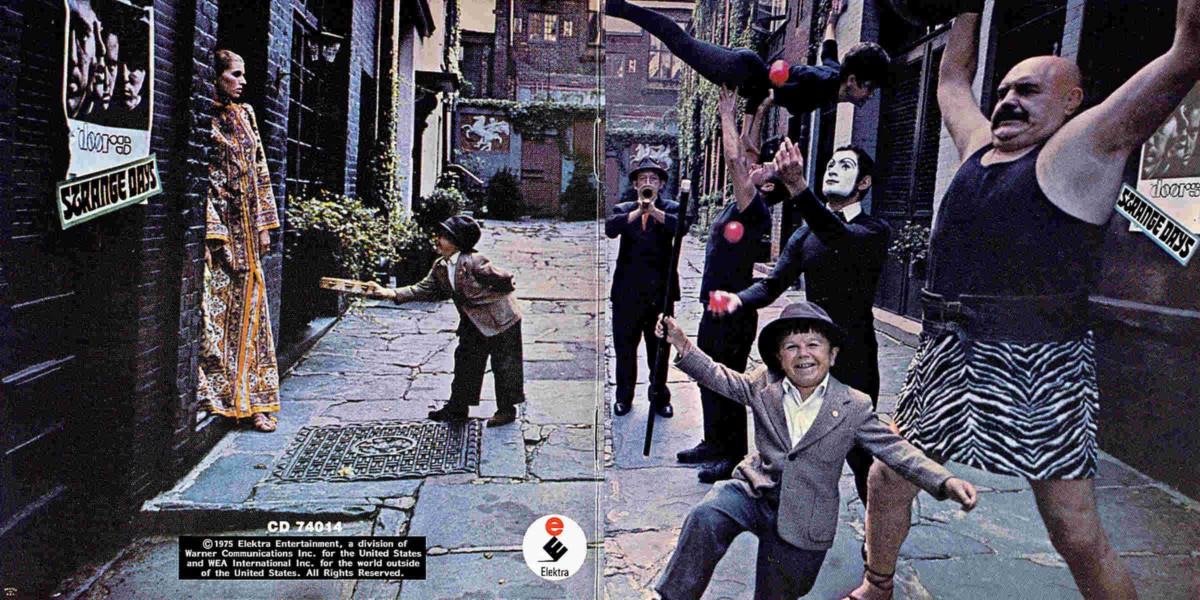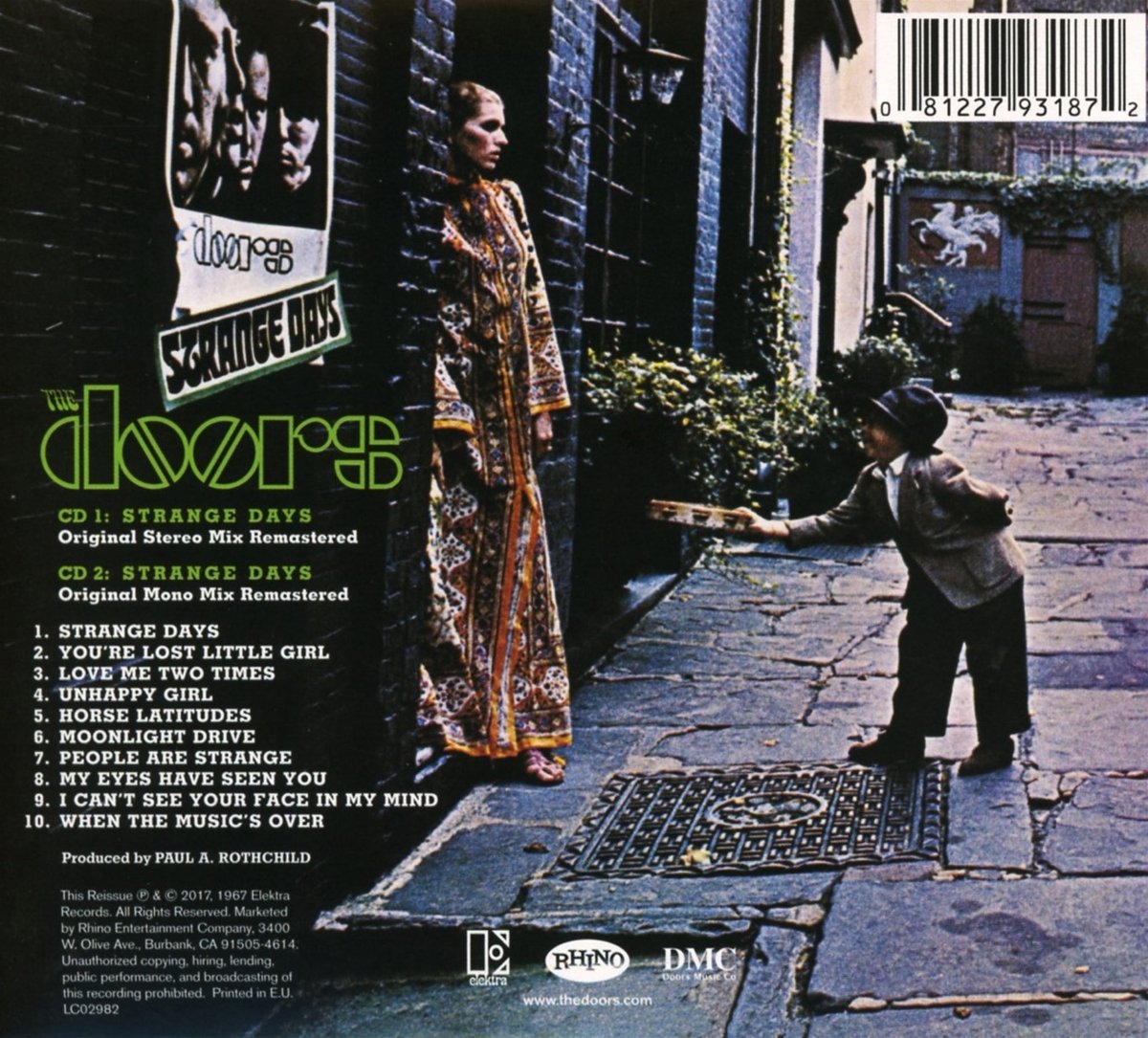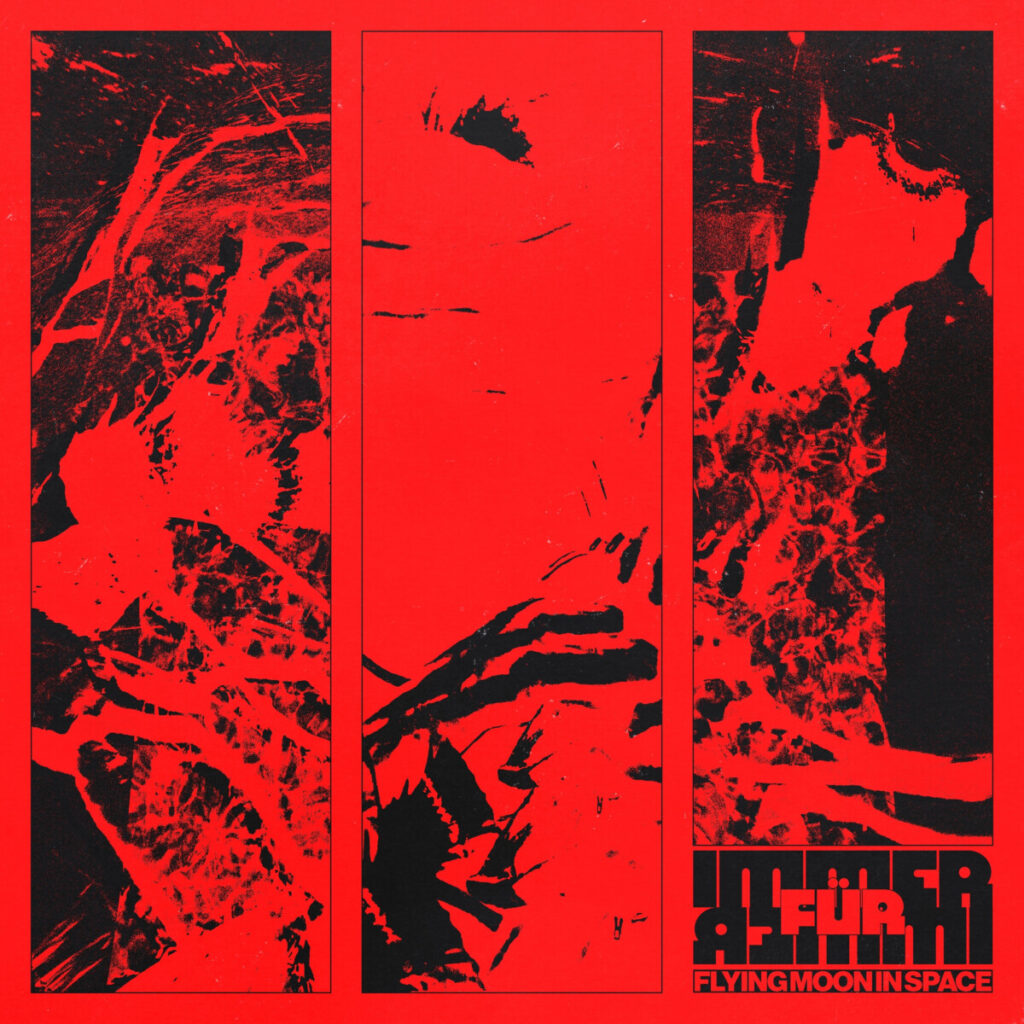The Psych Ward–Strange Days by The Doors
The Psych Ward–Strange Days by The Doors
Strange Days was the second studio release by iconic psych rock band The Doors. Released in September 1967– just eight months after the self-titled debut, their sophomore LP accorded the opportunity to stretch their eccentric wings and avant-garde impulses, resulting in an all-time classic.
“Strange days have found us” warily intones Jim Morrison on the eponymous lead track. The watery delay on his vocal was innovatively produced by Paul Rothchild and Bruce Botnick, who piped Jim’s voice through a Moog synthesizer played by Morrison himself. Ray Manzarek’s spooky Hammond organ lines and John Densmore’s emphatic percussion provide melodramatic undertones on this unsettling prelude. Session bassist Doug Lubahn contributes creative bass lines on several tracks, embellishing the ninth note on the mellifluous “You’re Lost Little Girl.”
The pace quickens with the minor blues rocker “Love Me Two Times,” featuring a catchy guitar hook by Robby Krieger, Manzarek’s punchy harpsichord lead, and staccato turnarounds. On the oddball “Unhappy Girl”, Ray plays the two-hand Vox keyboard intro backward, while Krieger’s slide guitar mimics a voice exclaiming ‘ooooh’ to start each phrase.
Morrison’s penchant for dramatic poetry is highlighted for the first time on record with the terse and psychotomimetic “Horse Latitudes.” Atmospheric winds and hallucinogenic inflections permeate this downright freaky track as engineer Botnick hand-wound the tape creating a varispeed effect. “Moonlight Drive” is guided by Ray’s piano, Robby’s tasty slide guitar lead, and evocative lyrics describing a romantic trek illuminated by a lunar orb.
Awkward alienation envelops “People Are Strange,” an accessible rocker and the album’s highest-charting single. “My Eyes Have Seen You” patiently builds into a fuzzy foot-stomper as Jim harmonizes with himself at its peaks while “I Can’t See Your Face In My Mind” gently meanders with the uncharacteristic inclusion of marimba by Manzarek.
“When The Music’s Over” concludes the album with a chaotic masterpiece, perhaps their finest opus (rivaled only by “The End”). Supplanted by hypnotic instrumentation, Morrison’s forlorn baritone ranges from provocative crooning to primal wails. The song surges and escalates from trance-inducing to turbulent discord to an astonishing climax.
Strange Days is an aptly bizarre release showcasing The Doors in their finest hour. Morrison’s moody machismo is betrayed by themes of loneliness and trepidation, amplified by Densmore, Manzarek, and Krieger’s musical wizardry. This LP inspired me in my teens to delve into the alluring mysticism of late ‘60s psychedelic rock and to perform The Doors’ music, particularly “When The Music’s Over” as a personal favorite. It is a venerable album worthy of frequent revisiting.
Related: The Psych Ward–Waiting for the Sun
The 100 Best Psychedelic Rock Albums
The Top 100 Psychedelic Rock Artists
Gallery
Recent Articles
Can Molly Mend Your Marriage?
•
February 16, 2026
Immer Für Immer by Flying Moon in Space–Album Review
•
February 13, 2026

Loading...




